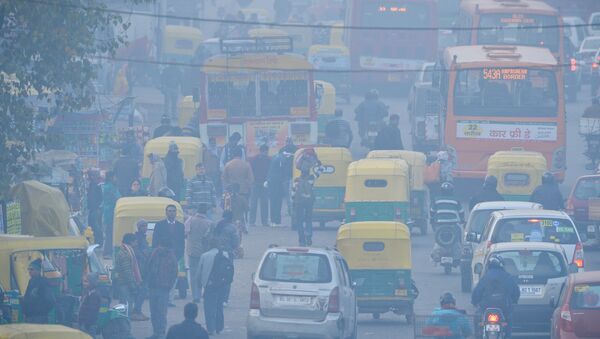According to the Delhi Economic Survey 2014-15, there are 2.79 million privately owned cars currently on Delhi's roads. Out of this, certain categories of vehicles are exempted from the odd-even scheme. Those categories include vehicles carrying the President, PM, Judges, vehicles belonging to Embassies, the state government, police, paramilitary forces and the Ministry of Defense. Women only vehicles carrying children age up to the age of 12 years-old travelling with them, vehicles driven/occupied by handicapped persons and vehicles carrying children in school uniform are also exempted. Despite this, more than 1.2 million vehicles are expected to be kept off Delhi's roads each day.
Delhi's Chief Minister Arvind Kejriwal has claimed that the pollution level in the city has dropped by at least 13 percent during the first phase of the scheme. "According to Fortune magazine, the pollution was reduced in Delhi by 13 per cent. There is a range of data, some claiming 20 percent while others claim 25 per cent reduction in pollution during the first phase of odd-even," Kejriwal said.
In anticipation of the second phase, Kejriwal announced that if successful, he may consider to implement the "Odd — Even" scheme for 15 days every month. The public, especially those worried by pollution and frustrated with traffic conditions, enthusiastically complied with the rule at the beginning of the first phase. But the enthusiasm seems to have somewhat died down this time around with the debate changing course. Initially the debate over the 'Odd-Even' rule primarily focused on its effectiveness in curbing pollution and the problems faced by regular commuters. Changing its course, this time, the debate is on the loss likely to be incurred by the refueling industry and the employees associated with it. The experiment has become a matter of grave concern for the thousands of workers employed at fuel pumps across the city.
Bansal, along with his committee members, recently met Minister Kejriwal and asked for compensation. "The drop in vehicle movement on the roads is directly linked with dealers' margin or profitability. If we are in 30% loss and our overhead costs like salary to workers and other fixed cost remains same, then this is a matter of major concern for all of us. If the scheme continues every month; then, we will be forced to cut manpower," he is reported to have said.
The move has also failed to find favor among the working class as they say they are forced to take auto-rickshaws and taxi cabs, which burn a hole in their pockets. "Public buses as well as the metro rail are jam-packed in office hours. If we are to reach office on time, we will have to hire an auto-rickshaw or a taxi. This way, we are forced to shell out extra money every other day. Driving our own vehicle is less expensive." This is a difficult situation for those car owners who use the services of drivers as they are not happy paying their drivers for the those 15 days when they will not be working.
Nevertheless, Delhi Chief Minister Arvind Kejriwal was confident in announcing that the "Odd-Even" scheme would be made permanent if the experiment is found to be effective.






